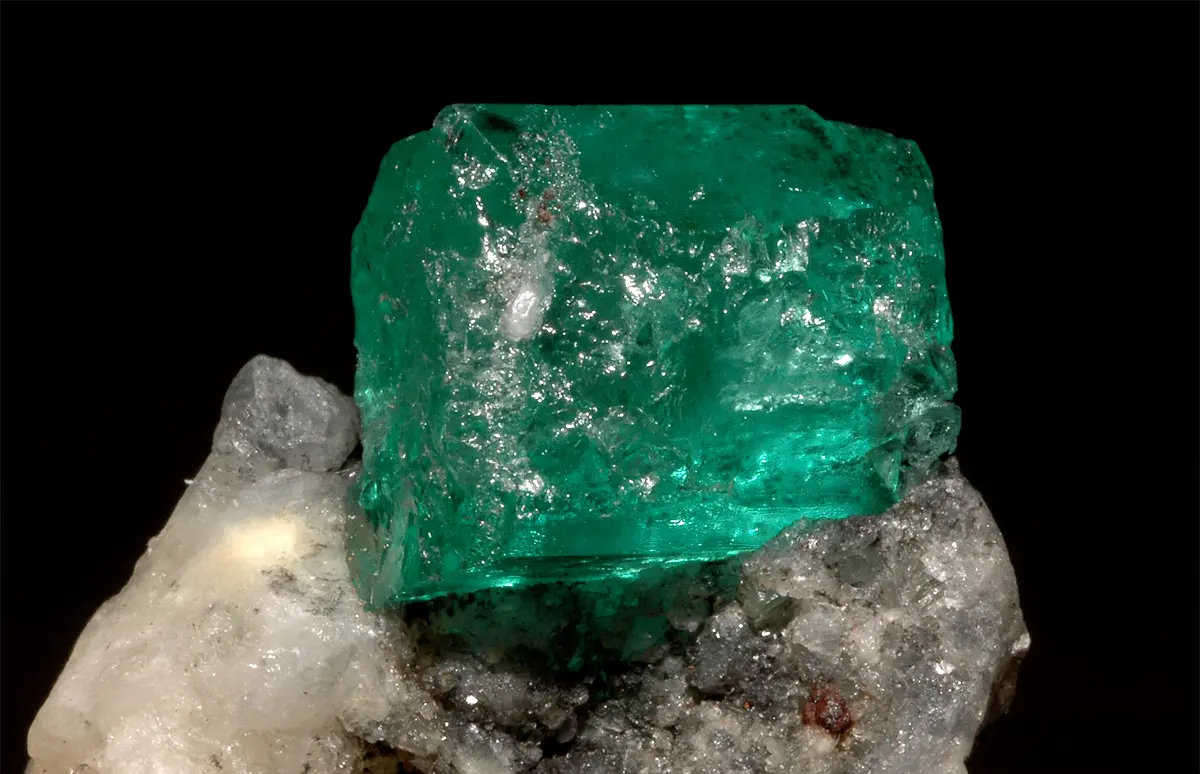Properties of Beryl
Beryl is a mineral composed of beryllium aluminum cyclosilicate, with the chemical formula Be3Al2Si6O18. It is a relatively rare and precious gemstone that occurs in a variety of colors, each associated with a specific gemstone name.

The following table provides a comprehensive list of beryl properties in both SI and US customary/Imperial units at normal temperature and pressure (NTP).
Note: click on the button to switch between Metric and Imperial units.
| Physical Properties | Metric |
|---|---|
| Chemical Formula | Be3Al2Si6O18 |
| Molar Mass | 537.5 g/mol |
| Crystal System | Hexagonal |
| Mohs Hardness | 7.5 - 8.0 |
| Density | 2640 kg/m3 |
| Color | Green, blue, yellow, colorless, or pink |
| Diaphaneity | Transparent to subtranslucent |
| Luster | Vitreous, resinous |
| Cleavage | [0001] imperfect |
| Fracture | Brittle, conchoidal |
| Streak | White |
| Thermal Properties | Metric |
| Melting Point | 1650 °C |
Note: unless stated otherwise, all values are taken at room temperature (approximately 20°C or 68°F) and 1 atm pressure. (1 atm = 101,325 Pa)
References: 1) Cardarelli, François. Materials Handbook: A Concise Desktop Reference. Switzerland: Springer International Publishing, 2018. 2) CRC Handbook of Chemistry and Physics, 97th Edition. United Kingdom: CRC Press, 2016-2017.
